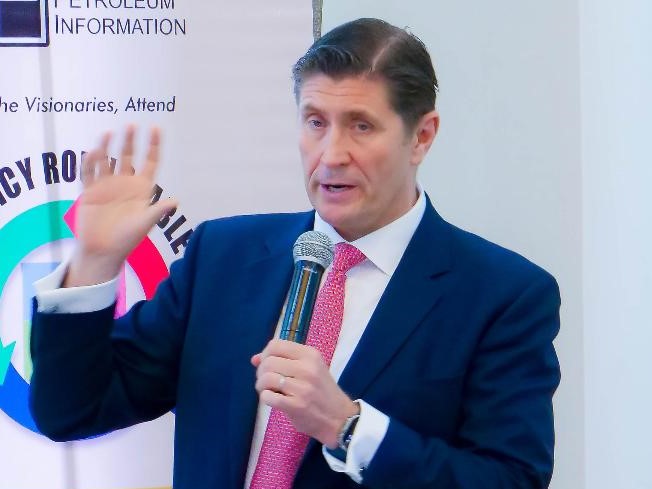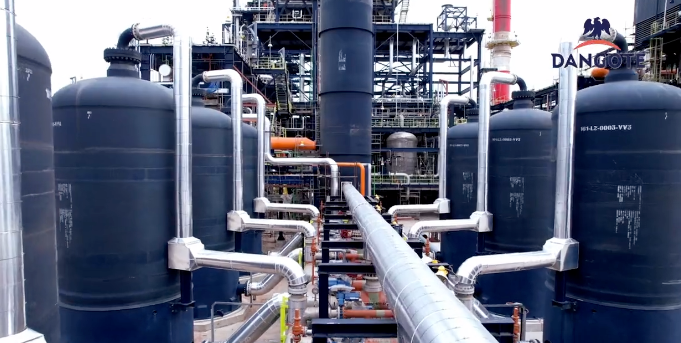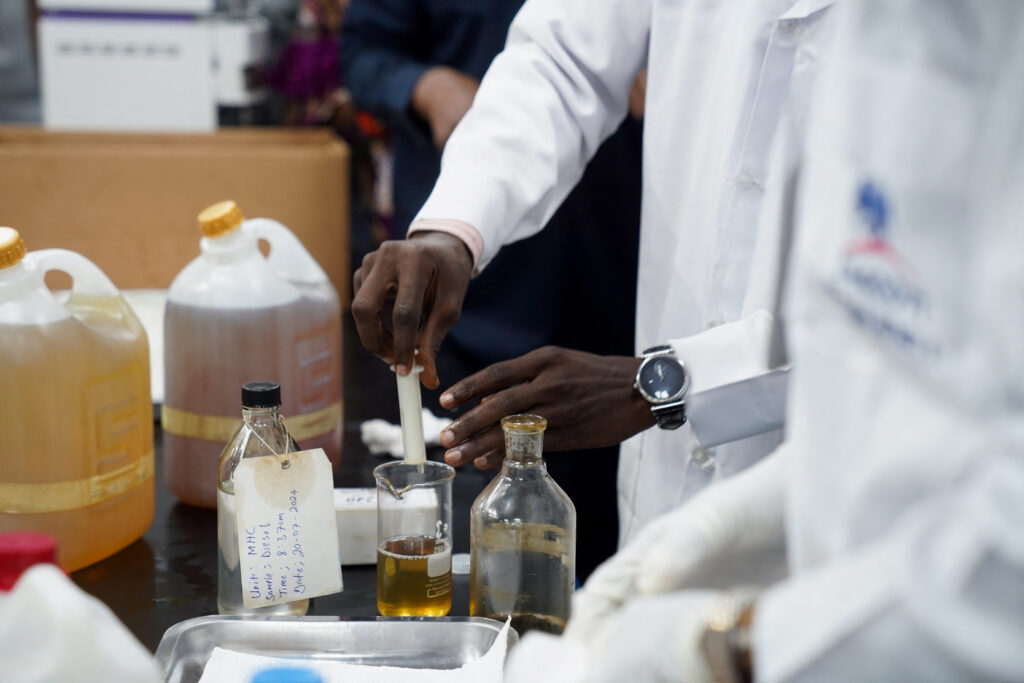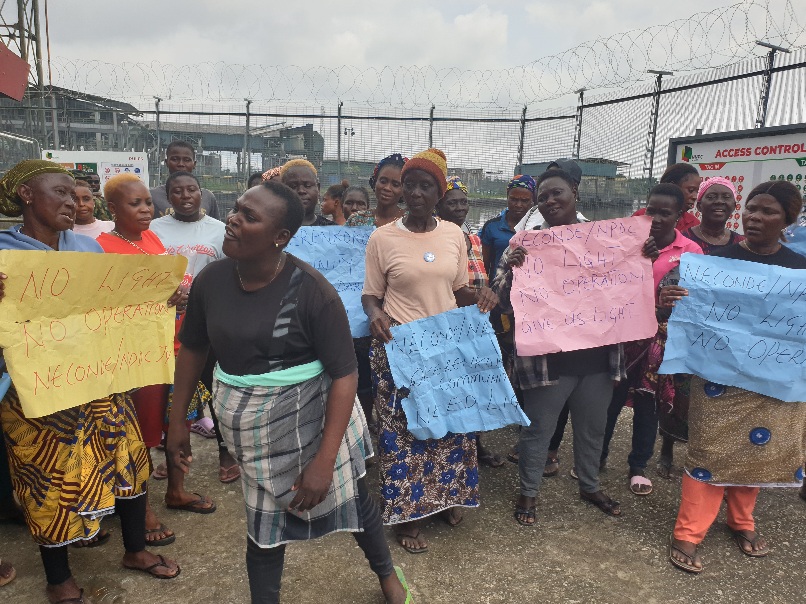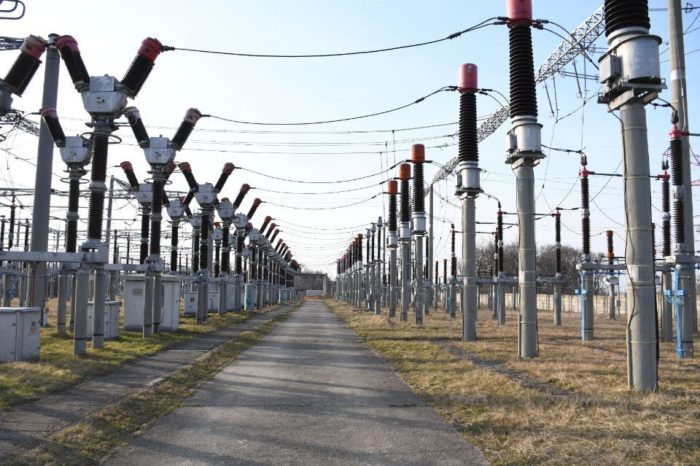Organised crime, sabotages threatening Nigeria’s oil, gas sector growth-Stakeholders

Solomon Ezeme
Major oil and gas companies operating in Nigeria have identified extreme insecurity and organised criminality as the bane of the incessant cases of crude oil theft and pipeline vandalism in the Niger Delta region, insisting that sabotages on petroleum product facilities have advanced far beyond the scope of host communities.
The stakeholders made this known at the ongoing 21st Nigeria Oil and Gas (NOG) Conference and Exhibition in Abuja, with the theme: “Funding the Nigerian Energy Mix for Sustainable Economic Growth.”
They noted that the Nigerian Government and the oil companies are accounting for huge losses due to sabotages on the pipelines. They therefore call on the government to evolve strategies to sternly end the entire economic crime.
EnergDay’s check revealed that Nigeria losses about 200,000 bpd (barrels per day) of crude oil worth around $3.27 billion to crude oil theft and pipeline vandalism, according to the Nigerian Upstream Regulatory Commission (NUPRC).
Recall that there have been various International Oil Companies (IOC’s), including the Nigerian Agip Oil Company (owned by Eni) and Petroleum Development Company of Nigeria Limited (owned by Shell), declaring force majeure on their operations, on several occasions, disrupting country’s supplies to the oil and gas market, due to repeated attacks by oil criminals. This has resulted in some of them divesting their onshore assets in Nigeria.
Speaking during the event, Mike Sangster, Managing Director/Chief Executive of Total E&P Nigeria Ltd. (TEPNG), pointed out that insecurity in the sector has gone beyond usual attacks by host communities on assets belonging to oil companies as it has presently become an organized crime.
He emphasized that the Host Community Trust Fund cannot sufficiently address the challenge of crude oil theft in the Niger Delta as host communities alone cannot be responsible for the menace, considering the level of crimes perpetrated within the region.
Sangster said, “The volume of crude being stolen is far more than the capacity of host communities. We have not produced our onshore field OML 58 since 24 of February because of pipeline vandalism.
“Security issues are a very concerning one and make investment decisions very difficult. The figures that are out there about the volume stolen are very concerning and they represent a huge revenue loss to the country. The issues have to be addressed and eradicated permanently.”
Wale Tinubu, the Group Chief Executive Officer, Oando Plc who expressed fears that Nigeria may not be able to meet a self-projected Organisation of the Petroleum Exporting Countries (OPEC) quota for September due to crude oil theft, stated that the country loses 20 percent of its daily crude production to oil thieves and pipeline vandals.
He said, “There has been a 43% reduction in our production from March 2020 to May 2022. We lose almost 20% of our daily crude production to oil thieves and pipeline vandals and 20,000 barrels a day of oil is lost to oil theft. Basically some three million barrels on average yearly is lost to oil theft and pipeline vandalism.”
“We will get to a quota of 1.8 million very soon because the OPEC agreement expires in September. They are easing production by 400,000 barrels per day.
“We are not meeting the quota and we will not be able to meet it by September,” the Oando boss noted.
Phillip Mshelbila, CEO of the NLNG, speaking during a panel session with the theme: “Harnessing the Opportunities in the Nigerian Gas Sector,” equally identified insecurity as a major setback to the growth of the gas sector in Nigeria while lamenting the huge revenue lost to crude oil theft and bunkering by the country daily.
Mshelbila who commended the Federal Government for the comprehensiveness of its “Decade of Gas” initiative, warned that the country’s gas sector may go into extinction if the Government and relevant stakeholders do not take deliberate actions to put an end to the menace of insecurity.
“We are about 200 million people with 200 TCF (trillion cubic feet) of gas. All of these also come with advantages. So, we have the source, the demand domestically and internationally. It is not about what we have in the ground. It is how we produce and monetise it.
“The problem of insecurity is gradually strangulating our industry and if we don’t fix it, it is the parasite that will kill its host. For solutions, we need a long-ranging and comprehensive one,” he stated.
He further noted that the Federal Government’s objective of reaching net zero compliance by 2060, based on commitment by President Buhari at the COP26 meetings in Glasgow, can be gradually achieved through the adoption of gas as transition fuel.
“The Decade of Gas (DoG) workplan has looked at the demand and supply side of natural gas in Nigeria, both domestic and export. It has also looked at the infrastructure, commercial and economic framework needed to address challenges in the industry.
“Our focus on LPG is part of the energy transition. We have committed 100% of our LPG production to the domestic market. This is to reduce the risk for women and children affected by smoke inhalation while cooking with firewood and other sources of fuel,” he said.

